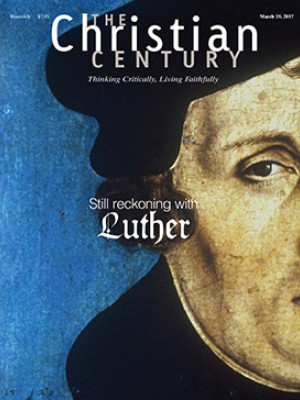Where do we rest our hope? What preoccupies us, fascinates us, motivates us, worries us, consumes us? To what do we finally aspire? This is the question raised by Paul in his letter to the Romans: On what do we set our minds (phronema)?
Paul asserts that there are ultimately only two paths. We can either set our minds on “the flesh,” or we can set our minds on “the Spirit.”
To take the first path, he warns, is to propel ourselves toward the endpoint of futility and death. Matters of the flesh will inevitably trap us. Paul has witnessed firsthand the coarse endpoint of the culture of the flesh: the tyranny of narcissistic rulers, the corruption of their sycophants, their cynical dismissal of manipulated plebes, the emptiness of financial and physical excess. We can certainly relate today.
But Paul also knows that even when we aspire to tame our basest impulses, our efforts are in vain. In his milieu, neither Greco-Roman virtue, nor the ideal of pure reason, nor even the desire to fulfill God’s sacred law can overcome our human limitations. Only by setting our minds on the Spirit, by looking beyond our flesh and will, can we find true freedom: “To set the mind on the flesh is death, but to set the mind on the Spirit is life and peace.” This is akin to the person who finally admits an inability to overcome addiction alone, appealing instead to a greater power. God, who raised Jesus from the dead, has the power to give us new life as well—even and especially when life seems dark and futile.
Read our latest issue or browse back issues.
We all know darkness and futility; this is inevitable. And it is exactly this hopelessness that the Gospel lesson lifts up with poignant accuracy.
Mary and Martha are grieving what they rightly perceive as the unnecessary death of their brother Lazarus. A delayed arrival in Bethany is not what they expected from Jesus, with whom their family has an intimate relationship.
Jesus’ delay is understandable from a purely defensive, logical stance. A trip through Judea will make him vulnerable to his enemies. Indeed, Thomas rightly predicts that Jesus’ return will end in his death. Yet Jesus goes anyway—putting his mind not on the flesh, but on God’s glory alone.
What intrigues me is that Jesus’ modeling of the life of faith—the mind set on the Spirit—does not deny the body’s mortal vulnerability or denigrate the heart’s roller-coaster ride of grief. The mind set on the Spirit is not disembodied; this is not a gnostic dualism. One of the most vivid, realistic aspects of this passage in John is that sorrow and grief are allowed to emerge full bore. Martha is resentful of Jesus’ delay, and in the same breath she trusts in the power of his compassion. Mary blames Jesus and at the same time kneels at his feet. Jesus himself is deeply moved and troubled (enebrimesato to pneumatic and etaraxen heauton); he weeps alongside the beloved sisters and their compassionate friends.
As was promised from the beginning of John’s Gospel, Jesus is not God’s ethereal, disembodied presence, but rather God’s Word that has become flesh, dwelling fully among us (1:14). Jesus weeps; he groans; he grieves; in the end, he will suffer and die alongside us and for us.
A cynic might well ask what difference any of this makes. If death is the last word, then it is romantic folly to debate whether to set our minds on the flesh or on the Spirit—whether to seek first to defend ourselves or give God glory. But of course, death is not the final endpoint. Jesus says to Martha, and to us, “I am the resurrection and the life. Those who believe in me, even though they die, will live, and everyone who lives and believes in me will never die. Do you believe this?” The word believe fails to capture what Jesus is asking; for pisteuo is never just a cognitive matter. Do you trust this? Do you rest your faith in this? Do you live toward this?
Perhaps I am stretching the nuance of the Greek and papering over differences between Johannine and Pauline approaches to the Christian life. But it strikes me that Paul’s invitation to set our minds on the Spirit is not altogether different than Jesus’ invitation to believe in him. The outcome is the same: unquenchable life, irreducible peace.
No doubt every generation must wrestle with what ultimately matters—with what is trustworthy, what is the endpoint of life, what we allow to consume and fascinate, motivate and capture us. But we are being sorely tested in our time as we determine where we will rest our hope, where we will set our minds. It would be understandable to allow our hearts to grow cold with cynicism, to approach our goals with Machiavellian calculation, to give up on a higher calling and settle on manifestly selfish aims. At times like this, we may wonder whether our feeble efforts at justice and compassion and truth make any difference in the world.
Scripture says yes. When we set our minds on the Spirit—looking to the glory of God and following the way of Christ, no matter what the cost to the flesh—it will be worth it. It is the way that leads to life.






